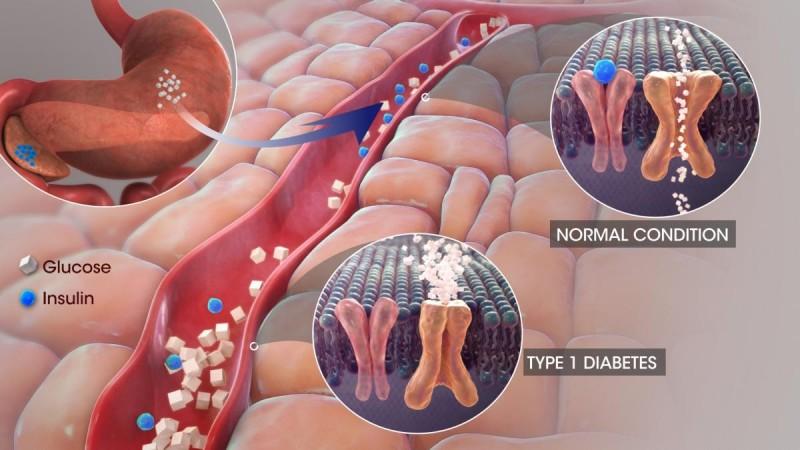With over 422 million sufferers, diabetes is one of the most prevalent non-communicable diseases in the world. Around 1.5 million deaths are attributed to the metabolic disease annually. Unfortunately, the numbers continue to witness an upward trend. Now, scientists have found that a newly identified hormone aids in the regulation of metabolism and may play a crucial role in the development of diabetes.
Through a new multi-institutional study, researchers have discovered that a hormone called fabkin may play an important part in the development of diabetes (both type 1 and type 2). It was gleaned that the levels of fabkin were abnormally high in the blood of human patients and mice with either of the two forms of the disease. Importantly, the authors also learnt that blocking the action of fabkin prevented the development of diabetes in mice.
"For many decades, we have been searching for the signal that communicates the status of energy reserves in adipocytes to generate appropriate endocrine responses, such as the insulin production from pancreatic beta cells. We now have identified fabkin as a novel hormone that controls this critical function through a very unusual molecular mechanism," said Dr. Gökhan S. Hotamisligil, senior author of the study, in a statement. The findings were published in the journal Nature.
A Key Protein

The regulation of the body's metabolism involves several hormones such as insulin and leptin. However, fabkin is unlike other conventional hormones: it is not a solitary hormone with a single fixed receptor. In contrast to other hormones, it comprises a functional protein complex containing several proteins such as adenosine kinase (ADK), fatty acid-binding protein 4 (FABP4), and nucleoside diphosphate kinase (NDPK).
Dr. Hotamisligil and his team discovered over a decade ago that during lipolysis—the process through which lipids stored inside adipocytes (fat cells) are broken down, usually to mobilize energy as a response to starvation—fat cells secrete FABP4. Since then, several studies have shown associations between circulating FABP4 and cardiovascular disease, cancer, and metabolic diseases such as diabetes and obesity.
Role in Development of Diabetes
Through the new study, the scientists showed that when FABP4 is secreted by fat cells, it enters the bloodstream and attaches itself to ADK and NDPK. As a result, a protein complex( FABP4-ADK-NDPK)—which has now been identified as fabkin—is formed. Within this complex, the action of ADK and NDPK is modified by FABP4 in order to moderate the levels of adenosine diphosphate (ADP) and adenosine triphosphate (ATP).

ADP and ATP are organic compounds that serve as essential carriers of energy. The authors observed that surface receptors found on nearby cells sense change in the ratio of ATP to ADP. This triggers a response in the cells to the changing status of energy. Fabkin, by itself, is able to modulate the activity of these target cells.
Using a mice model, the scientists demonstrated that fabkin targets insulin-producing beta cells in the pancreas, and that the hormone plays a guiding role in the development of diabetes. When an antibody was used to neutralize fabkin in mice, diabetes was not found to develop in these animals. Incredibly, when obese and diabetic mice were given the antibody, they returned to a healthier state.
"The discovery of fabkin required us to take a step back and reconsider our fundamental understanding of how hormones work. I am extremely excited to find a new hormone, but even more so about seeing the long-term implications of this discovery," concluded Dr. Kacey Prentice, lead author of the study.













